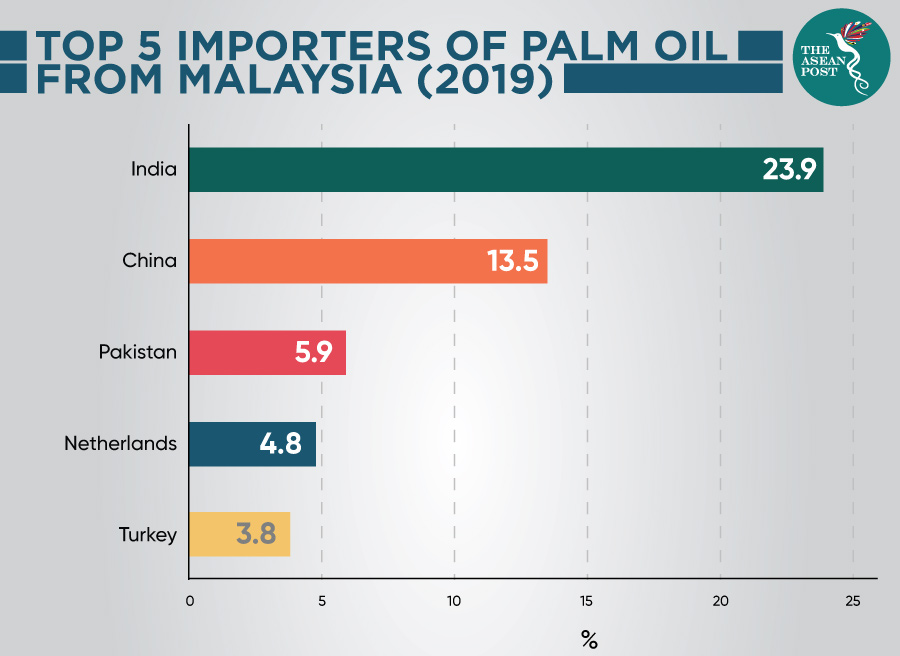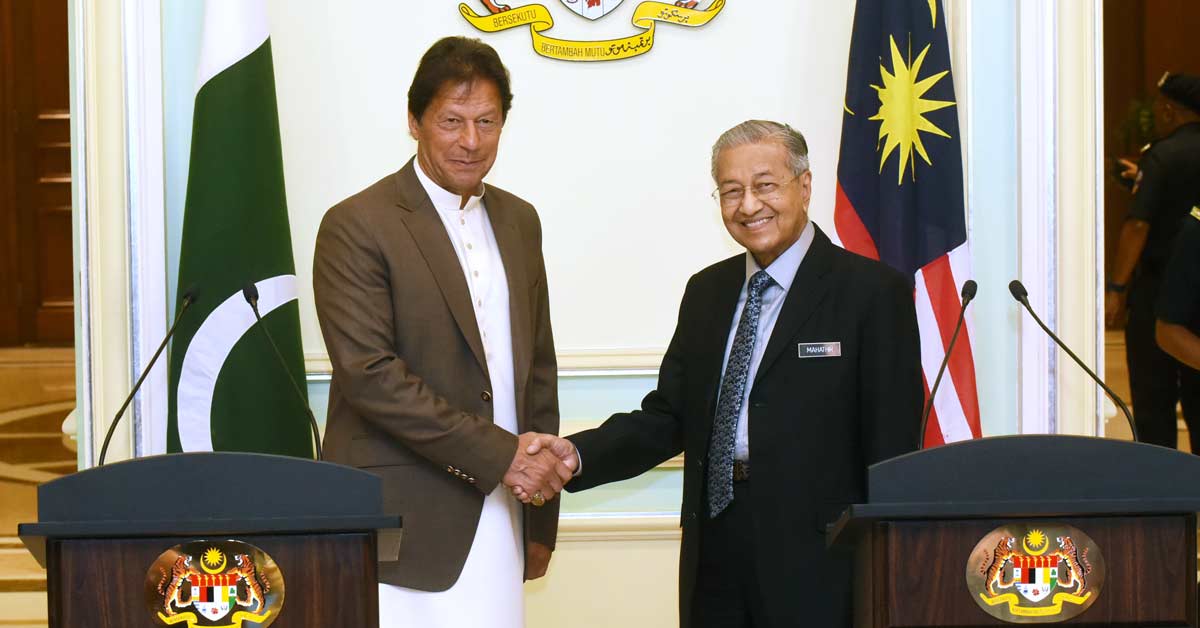In March last year, when Malaysian Prime Minister Dr Mahathir Mohamad visited Pakistan, he made it clear that Malaysia will not take sides on the Kashmir issue. Nevertheless, at the United Nations (UN) General Assembly, he was a changed man.
He accused India of "invading and occupying the country" of Jammu and Kashmir. Previously, he had reserved such a choice of strong words for the likes of the United States (US) and Israel.
He dropped another bombshell when on the side-lines of the Kuala Lumpur Summit 2019, where he not only questioned the "necessity" of the Citizenship Amendment Act (CAA) and even said: " I am sorry to see that India, which claims to be a secular state, is now taking action to deprive some Muslims of their citizenship."
India, taking umbrage at his remarks, advised him to refrain from making comments on India’s internal matters, and – in retaliation – imposed curbs on the import of palm oil from Malaysia. However, Dr Mahathir, instead of softening his stand, has double-downed. Reacting to Indian restrictions, he said he was concerned about it but that would not stop him from speaking out against New Delhi's recent actions.
"We're concerned, of course, because we sell a lot of palm oil to India, but on the other hand, we need to be frank and when something goes wrong, we need to say it," he said, adding "If we allow things to go wrong and think only about the money, then a lot of things will go wrong."
Many political observers feel that Dr Mahathir's toughening stand shows that in the twilight of his political career, the Malaysian leader wants to wield the mantle of leader of the Muslims or Islamic world.
Dr Mahathir's comments must be seen in the background of the recently-held the Kuala Lumpur Summit 2019 where countries like Pakistan, Turkey, Qatar, Iran, and Indonesia were invited.
Although the KL Summit was called to enhance cooperation, its real reason was to challenge the hegemony of Saudi Arabia over the Islamic or Muslim world and to project himself as the leader of the Muslim ummah (brotherhood).
Mohamad Riadz bin Mohamad Hashim, division chief for Dr Mahathir's Malaysian United Indigenous Party (PPBM), said: "It's quite obvious. There has been a void in the leadership of the Muslim ummah. If it's not Dr Mahathir, then who else?"

On the issue of Dr Mahathir's statement on Kashmir at the UN general assembly, Mohamad Riadz said Dr Mahathir’s statement is aimed at the world after witnessing violence in Kashmir and the plight of ordinary Kashmiris.
Adil Rasheed, Research Fellow, at the Institute of Defence Studies and Analyses (IDSA), New Delhi, also feels that – like all other great leaders – Dr Mahathir wants to leave a legacy but also says that such a stand is going to damage Malaysia's image as a liberal, multicultural Muslim country.
Rasheed said: " In his bid to project himself as more than a Malaysian leader, nonagenarian Mahathir Mohamad has started questioning Iran sanctions and raking up trite, non-issues of Xinjiang and Kashmir. Unfortunately, this undermines Malaysia's long term political and economic interests and its image of being a tolerant and developing Asian country."
A Kuala Lumpur-based communication strategist, who does not want to be named, said that the deafening silence of Muslim countries on atrocities being committed on Muslims in Kashmir and Xinjiang has forced Dr Mahathir to raise his voice at international fora.
Dr Mahathir's stand was aimed also at the domestic Malays Muslim audience as his Coalition of Hope (Pakatan Harapan) government is viewed as being dominated by its coalition member, the Democratic Action Party (DAP) – a party some Malay conservatives see as being anti-Malay and anti-Islam.
The anonymous communications strategist went on to say: "The silence in Muslim countries on these two issues has created a lot resentment among the local populace. The Malays are very sensitive to Muslim issues. The events in India and Xinjiang have provided Dr Mahathir with the right opportunity to grab international headlines and, at the same time, show Malays that his heart bleeds for Muslims, wherever they are.”
The international outcry against the massive crackdown on the civilian population in Kashmir and deaths in protests against the CAA in India has emboldened Dr Mahathir. That is why there is hardly any reconciliatory tone in his statements.
The communication strategist adds: "This is the same reason he refused to extradite to India the controversial Indian preacher, Zakir Naik, who is hugely popular among Malays.”
In the end, is Dr Mahathir indeed trying to portray himself as a leader of the Islamic world? And if so, at what cost?

Related articles:
